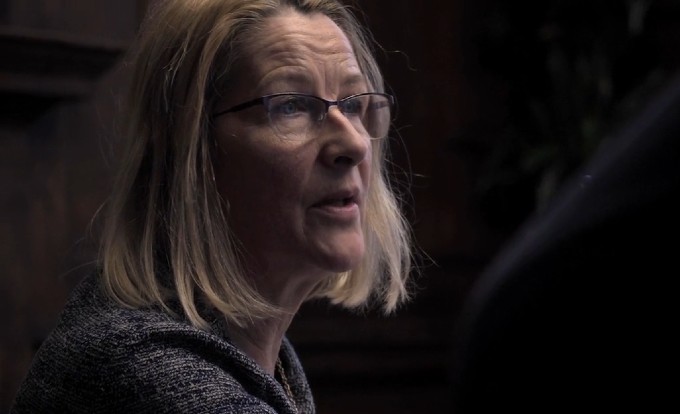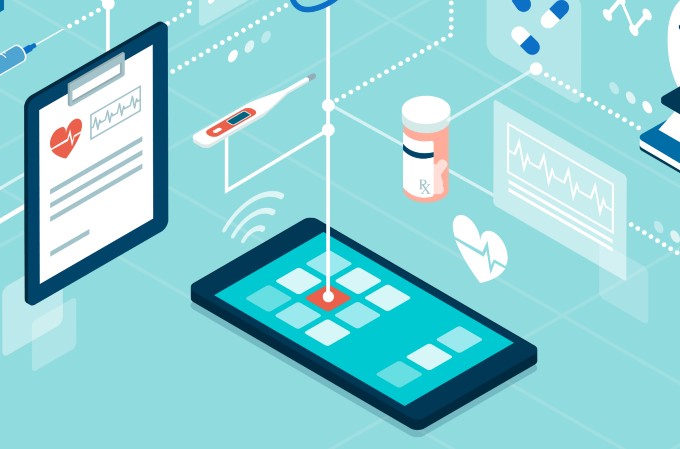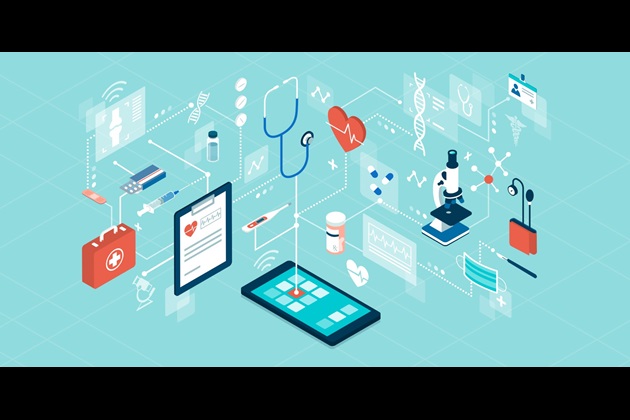Nursing staff have the knowledge to influence digital transformation in health care. The RCN eHealth Forum's new resource offers the career inspiration you need to get started
“Digital transformation is not just about putting your patient notes on a computer or making a video call,” says Annette Gilmore, Chair of the RCN eHealth Forum. “Digital transformation is about thinking differently.”
At RCN Congress in 2016, the eHealth Forum’s successful resolution “every nurse an e-nurse”, highlighted the need for nursing staff everywhere to be involved in the digital transformation of health care. If new technologies and systems are going to be successful, they must meet the needs of nursing staff and be intuitive and easy to use.

Getting nurses into digital roles in every health care organisation is crucial to making that happen. “Digital roles are really important for nursing because digital technology is everywhere in the health and social care environment,” says Dawn Dowding, Professor in Clinical Decision Making and member of the eHealth Forum. “It’s really important that nurses understand how they can use that technology more effectively for patient care.”
The forum and RCN eHealth Lead Ross Scrivener have created a resource to encourage nursing staff from diverse backgrounds and specialties to embrace digital transformation. Through video and audio interviews with nursing staff, the resource offers a section on digital roles, showing the breadth of jobs currently on offer, the directions a digital nursing career could take, and where to find education and training resources.
It is our business to help all nurses be digitally engaged and influence in their workplaces to create better outcomes for patients
The second part covers digital innovations, with case studies of nursing staff who’ve used digital technology to streamline processes, use data more efficiently, or create new products to improve patient care.
“It is our business to help all nurses to be digitally engaged, gain digital skills and be able to influence in their workplaces to create better experiences for themselves and better outcomes for patients,” Annette says.

The resource tackles obstacles identified by nursing staff in the forum’s 2018 report. “What came up as barriers was the inadequacy of IT systems in the workplace, understaffing, and a lack of confidence in digital skills,” Annette says. The forum also learned that there was a lack of diversity, with digital roles still dominated by white men, and few clear career paths to get into digital leadership positions.
There’s plenty of career inspiration. We hear from nurses involved in the development of new IT systems, digital champions who share knowledge with colleagues, staff who work with external developers to create apps and equipment, lecturers, researchers, and chief nursing information officers (CNIOs) who form digital strategy within health care organisations.
“For digital nurses, this resource is going to be a huge opportunity to signpost people to where they need to go to, if they want to go into this career,” says Sam Neville, Chief Nursing Informatics Officer and RCN eHealth Forum member. “We need to encourage more people, especially from black and minority ethnic backgrounds, to join digital nursing.”

Meanwhile, the selection of digital innovations aims to get nursing staff thinking about what could be done in their own area of work. There’s virtual reality helping the people of Grenfell access health care, a digital passport for people with learning disabilities, and examples of using data more efficiently to save staff precious time.
“A bit of equipment or a digital tool could help you and we want you to have the confidence to explore that,” Annette says. “We are here as the eHealth Forum for you to come to for advice. You are experts in your area of practice, so you know what kind of equipment, computers and software is needed.”
Nursing staff also need to know where to find support when new technologies are introduced. “It’s alright having a new computer or piece of software but you need to be able to access excellent technical support to help you make best use of its functionality and get problems fixed immediately,” Annette says. “Nurses need to be knowledgeable enough to say: this is the equipment I want and this is the support that I need.”
The COVID-19 pandemic has forced many to find new ways of working that include technology, which could provide the momentum for long-term changes. “The pandemic has highlighted that we can work differently,” Annette says. “It has demystified digital technology and shown how useful and important it is. People hopefully understand that digital technologies are useful, effective and can be easy if you acquire skills and help with confidence. We all had to start in the same way and the forum is here to support you.”
Digital passport for disabled care
Catriona Jamieson works at PAMIS, a charity based in Dundee which supports people with profound and multiple learning disabilities (PMLD). She says: “People living with PMLD are some of the most excluded people in our communities as they are often unable to communicate their thoughts and feelings.
“The digital passport is an e-book containing information specific to individuals, including their likes and dislikes, care needs, medical procedures and effective ways of communication. Made up of photos, videos and sounds, the passport can be used to educate health care professionals on how to meet needs that aren’t necessarily standard care.
“It makes sure that people are seeing a person, rather than someone who has a learning disability. Service users have been able to reach out to the people providing care and show them how to work with them. People using the digital passport are able to prepare for a visit and set service users up for success, avoiding situations where they’re having to deal with someone who is anxious and upset. It also helps people to physically plan, making sure the right equipment such as hoists are available, and people who are qualified to take that on.”
Becoming a digital health fellow
Roxanne Nwaobi-Crosby is head of research nursing at the National Institute for Health Research Clinical Research Facility, Moorfields Eye Hospital. She has recently started a digital health fellowship, allowing her to find innovative ways to help patients with diabetic eye disease, a leading cause of eye loss. She says: “The fellowship is designed to support staff at band 6 and above to develop specialist skills including use of digital technologies.
“As a nurse, I’m focused on patient-centred care and I’m adept at holistically reviewing services to improve patient care. I’m aware of the pressures faced by clinicians on the frontline and the experiences of patients. I am able to use my knowledge, experience and networks to encourage the initiation and adoption of digital pathways to release time to care and improve the patient experience.”








